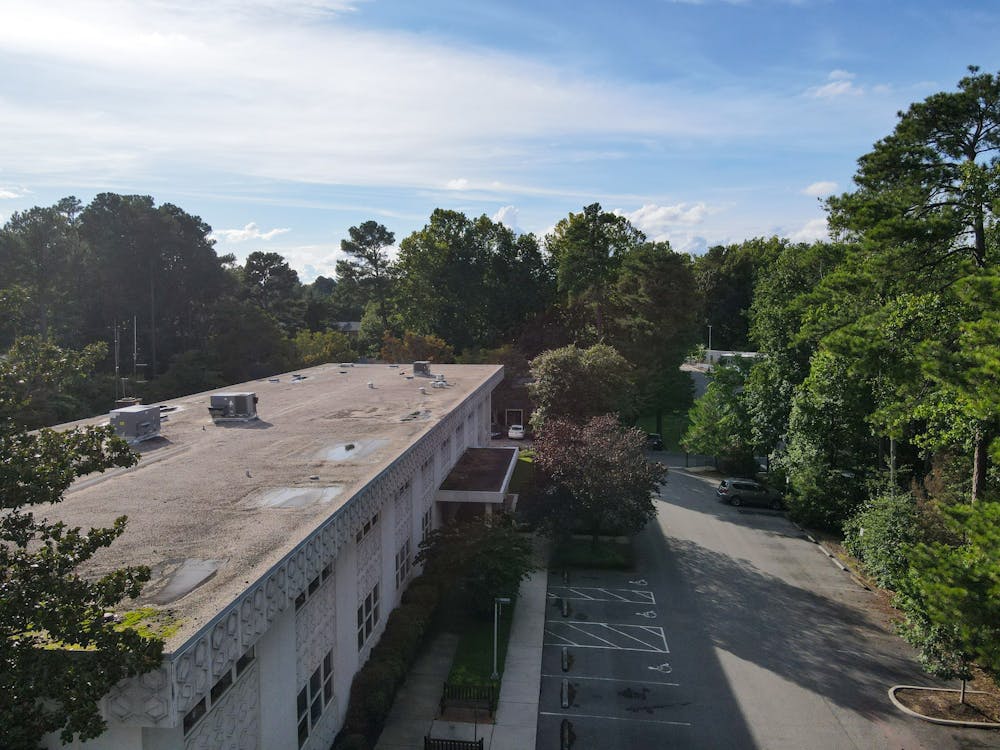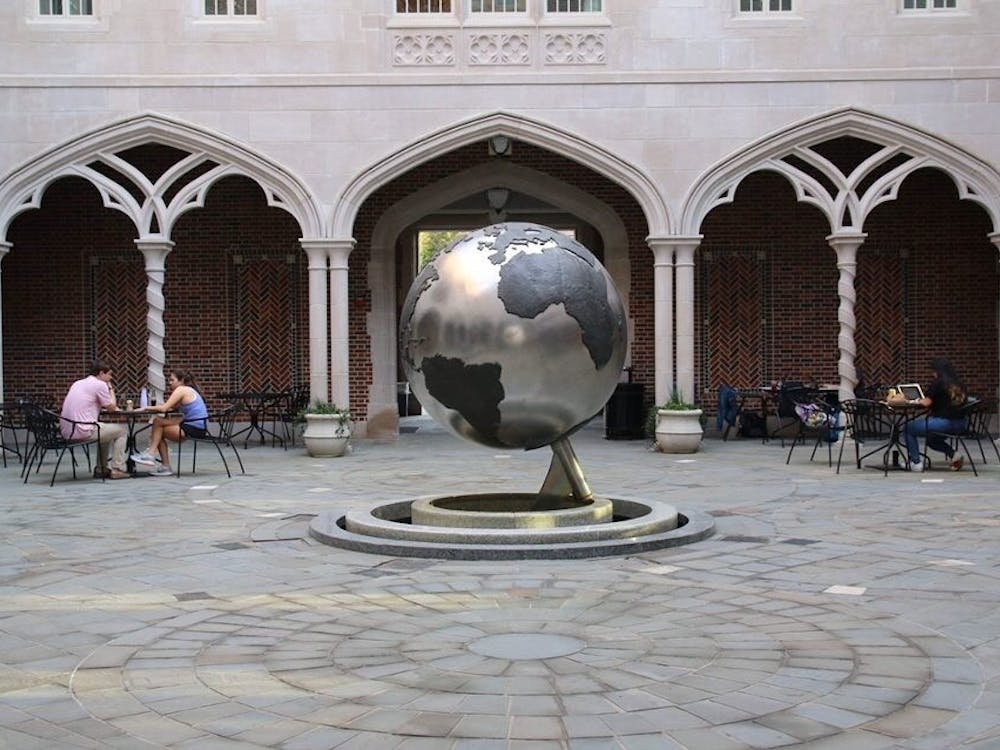The bi-weekly rapid antigen tests for COVID-19 prevalence testing this semester have resulted in some false-positive results for students.
The University of Richmond is not formally tracking the percentage of test results that are false positives, Sunni Brown, UR's director of media and public relations, wrote in an email to The Collegian.
"The speed of the test results combined with the frequency of testing for undergraduates promotes the health and safety of our community by allowing us to quickly identify and respond to COVID-19 cases on campus," Brown wrote. "Importantly, it also avoids having students wait a day or more for their test results.
"In general, the risk of a false positive is somewhat greater with a rapid antigen test than with a PCR test, which is why we mitigate the risk of a false positive by conducting a follow-up PCR test the same day as the antigen test."
Senior Jess Mahoney missed her last performance for University Dancers because her roommate received a false positive on Feb. 26, she said. That roommate tested positive from the rapid antigen test, and per university policy then took a PCR test to confirm the result. She drove home that same day, while Mahoney and her two other apartment-mates were put into pre-quarantine in their apartment on campus, Mahoney said.
Mahoney and her apartment mates thought their roommate had received a false-positive test result and got permission from a residential dean to go off campus and get antigen tests themselves, she said.
"We thought if there was any way we all went and got rapid tests and were all negative, I would be able to dance," Mahoney said. "We all got negative rapid tests and it didn’t make a difference. It was just the worst timing that it happened to fall over that 48-hour window.
"It was so frustrating because I’d been working on [the performance] all year, all of last semester and all up until now, and I was being really careful."
Mahoney's roommate who tested positive was notified that the rapid test result had been a false positive the night of Feb. 27, after her PCR test came back negative.
Sophomore Annie Beckerman received a false-positive test result on Feb. 8, she said. After being notified of the result, she went to the Student Health Center to take a PCR test and was then contacted by Patrick Benner, UR's director of residence life and housing, to coordinate going into isolation, she said.
"He basically just gave me a time for them to come pick me up, sent me a packing list and said that I could have decided if I wanted to go to the isolation pods, go home, or stay somewhere else," Beckerman said. "But I kind of was thinking it was going to be a false positive, so I did the isolation pod because I didn't think I'd be there for too long."
Her roommate had gotten a negative test result from her prevalence testing on the same day Beckerman received her positive result, and the next day, Beckerman's suitemates in Gray Court went off-campus to get antigen tests at Patient First and both tested negative, she said.
Enjoy what you're reading?
Signup for our newsletter
"That made me a little bit more confident in the fact that it was probably a false positive," Beckerman said, "because if I had it, they would have also most likely had it."
Beckerman's roommate and suitemates were told to isolate in their rooms until her PCR came back, Beckerman said. Shortly after her roommate and suitemates began isolating, the Student Health Center called one of her suitemates and said Beckerman's PCR result was positive — but Beckerman had not gotten her PCR result back yet.
"[The Student Health Center] actually made a mistake on my form and put positive next to PCR instead of rapid, so one of my suitemates got a call saying, 'We’re coming to get you in however much time; a golf cart is going to come and you’re going to have to go to [an isolation] pod.'
The suitemate responded that Beckerman hadn't gotten her PCR back, but the Student Health Center said that was what was written down, Beckerman said. About 15 minutes later, the Student Health Center called the suitemate back and said they had mistakenly recorded that Beckerman's positive result was from a PCR test, not an antigen test, she said.
Beckerman was notified that her initial rapid test had been a false positive on the morning of Feb. 10, after her PCR test came back negative, she said.
Junior Ally Osterberg received a positive rapid test on Feb. 25. After taking a PCR test, she drove home instead of choosing to quarantine in a pod on campus, and her apartment mates and boyfriend went into pre-quarantine, she said.
She was notified that it was a false positive on Feb. 27, she said.
"The nurse who called me to tell me that my PCR was negative said, 'because the rapid tests are so quick, it's great we get our results back pretty quickly, but you do have to trade accuracy for that, and because right now COVID rates are so low on campus, it's not a surprise that the false-positive rates are increasing,'" Osterberg said.
According to the CDC, false positives occur more often in communities where COVID-19 cases are lower.
Senior Kate Sjovold received a false positive result on Feb. 23. Sjovold said she had been frustrated because she was not given instructions about what to do after receiving the result and had to reach out to the Student Health Center herself to receive instructions, she said.
"I'm very COVID[-19] cautious," she said. "I have a small group of friends and we don't really hang out with anyone else, so it was confusing and frustrating. The most frustrating part was just the fact that no one really contacted me in the beginning.
"I was like, 'I literally have no idea what I'm supposed to be doing right now.'"
Sjovold took a PCR test at the Student Health Center after her positive rapid test and was notified of her negative PCR test on Feb. 24, which was her birthday, she said.
Contact news writer Meredith Moran at meredith.moran@richmond.edu.
Support independent student media
You can make a tax-deductible donation by clicking the button below, which takes you to our secure PayPal account. The page is set up to receive contributions in whatever amount you designate. We look forward to using the money we raise to further our mission of providing honest and accurate information to students, faculty, staff, alumni and others in the general public.
Donate Now



